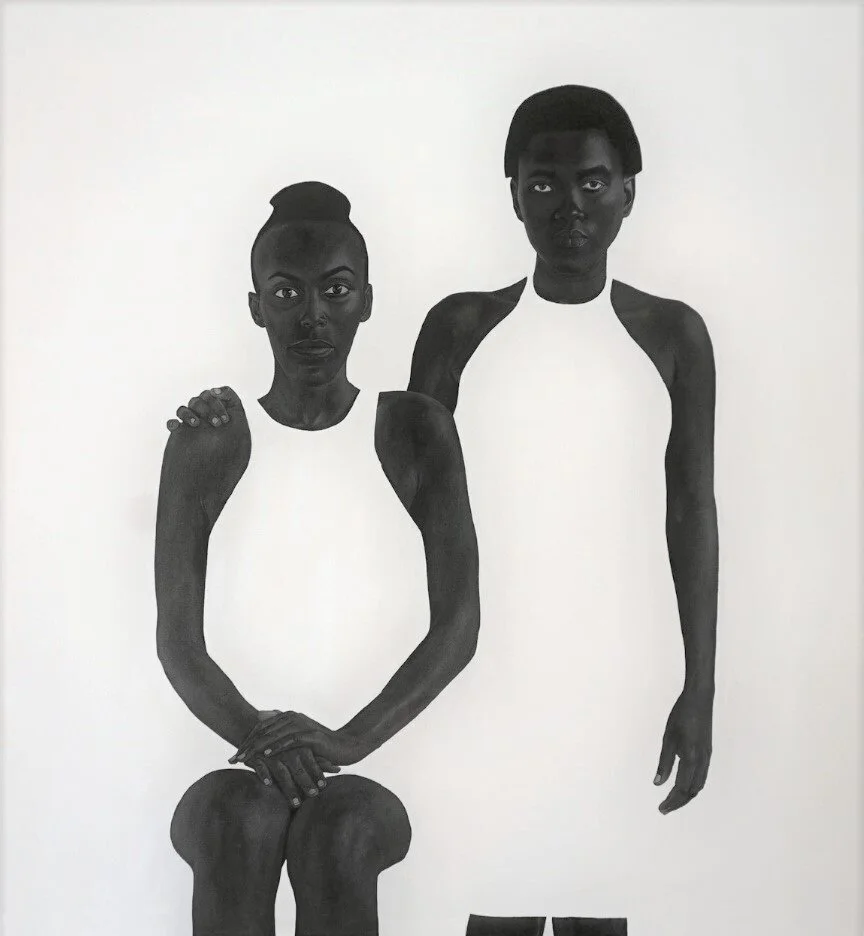
Image: Sungi Mlengeya
The co-founder of Home Girls Unite, a platform supporting eldest immigrant daughters, reflects on the experience of being a second mother to siblings
words Yasin Bojang
When was the first time you realised that you were going to lead a different life from your non-immigrant peers? For me, it was at the age of 11 when I had to prioritise babysitting my two-year-old brother while my parents worked/did other tasks.
Perhaps you’re thinking poor girl. Or perhaps you’re thinking, this was/is my life. Perhaps you’re also the eldest daughter from an immigrant home, either way, I want to encourage you to relax whilst reading this. You deserve it, we all deserve to rest. Resting is the only way we can have the energy to cook, clean, be emotionally available for the whole family, be a second mother, and, not to forget, be financially stable from the age of 18 to provide for everyone and their grandmother. These are some of the experiences that come with being an eldest immigrant daughter.
As an eldest daughter, I have felt the weight of my whole family on my shoulders. Imagine having a job that you’re not qualified for, going in every day to complete tasks you have no knowledge or experience of; that was my reality in the family setting. I spent the majority of my young life worrying about how to be a good mum, dad, sister and friend. I forgot to be me, I forgot to be good to me. This caused a lot of self-doubt and ultimately led me to experience severe anxiety.
I know our parents have a lot to prove to their extended families, be it in the education system, career choices or getting us ready for marriage. I also believe that a lot of them could have done a better job at protecting us from the trauma and pressure all these expectations have brought upon their children. I’m sure that they mean well and some of them most likely do not think about the consequences their decisions have on us, but it can be detrimental to our mental wellbeing.
We created Home Girls to support immigrant daughters with managing and healing from the mental health issues and traumatic experiences they have encountered as the eldest females in their family. We are not blind to the fact that our parents are their own people, with their own life experiences - some of which may have included not so pleasant events. We know that our mothers didn’t have it easy raising children in a foreign country and as the proverb goes ‘it takes a village to raise a child’, so maybe we were their only option of support.
Yet, does that mean that as family members, eldest daughters or not, we have to bite the bullet and continue playing our part in the family unit at the risk of our mental wellbeing? Being selfish in an immigrant home is practically a crime but there has to be better balance which is why setting boundaries is so important.
Motherhood is something I am excited about. I am excited to have children that I made the decision to have, children that are my responsibility because I brought them into this world. I didn’t feel my siblings should have been my responsibility. I didn’t give birth to them. I love my siblings, but I wish I was just a sister to them. I didn’t want to be the one to have to discipline them, cook, clean up after them and help with their homework because that meant I didn’t get the chance to have fun, laugh, play games and do what siblings are meant to do. It is only in the last six years, and after moving out of the family home, that I started rebuilding our relationships.
“I didn’t feel my siblings should have been my responsibility. I didn’t give birth to them. I love my siblings, but I wish I was just a sister to them.”
I am not an exception; this scenario is lived by almost 90% of our community members of over two thousand women. Our aim at Home Girls is to change the narrative. We want to break the cycle. We do not want to suffer the unpaid labour our mothers did, we want to listen to our children and listen to their needs. Most importantly, we do not want our eldest daughters to be second mothers ten or twenty years from now.
Read more stories and considerations on contemporary motherhood in our latest release Motherhood Untold: Six Essays on Unconventional Motherhood.